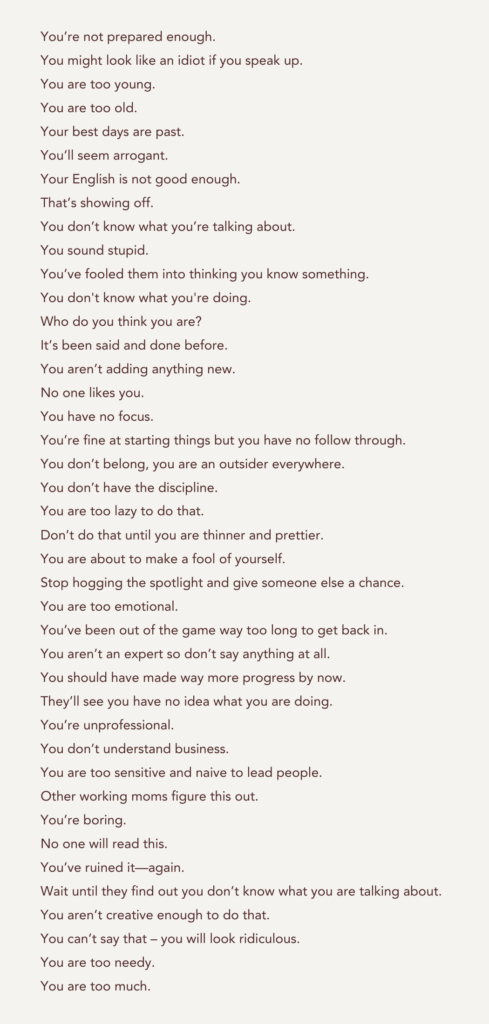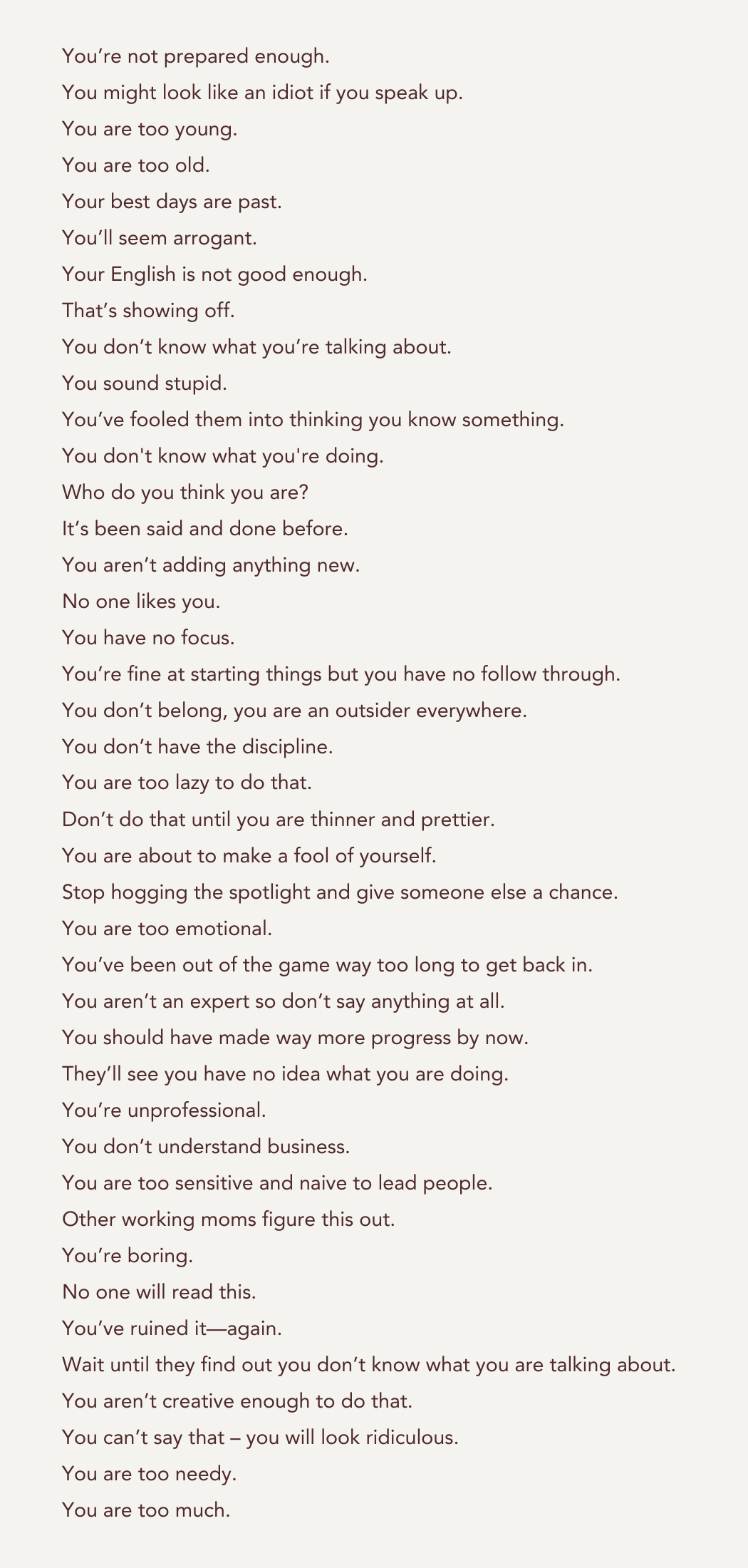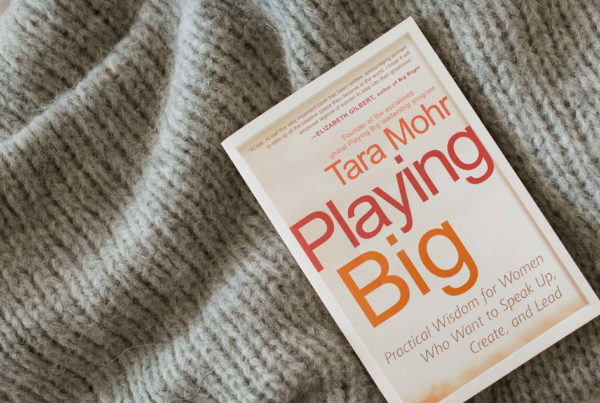
These are the real words of women, sharing what their inner critics say, sharing the kinds of self-diminishing thoughts they live with, day in and day out. (And we all know their lives are hard and demanding enough without an added dose of self-criticism.)
When I teach a Quieting the Inner Critic workshop, I begin by asking the participants to share one thing their inner critic says to them. Answers like this stream in. A flood of self-criticism. A flood of the legacy of the sexism that lives inside us. A flood of the legacy of a civilization not yet loving enough to build people who cherish themselves and each other.
Then I ask the women present what they feel reading all those inner critic thoughts from others. Undoubtedly people say:
“It makes me so sad.”
“My heart hurts.”
“I’m crying reading these.”
“I can’t believe we do this to ourselves.”
“It’s terrible, but it makes me feel less alone.”
“Horrible but healing.”
Fifteen years ago, when I started my coaching practice, the inner critic voice was loud for every woman client I had – and they were all remarkable, capable women. At that time in my life, the inner critic was loud, invasive, and dominant in my own head, too.
I got very, very interested in how we quiet that voice – quiet it enough that it doesn’t direct our decisions, keep us silent, or hold us back from going for our dreams.
Things that I’ve found don’t work (for most people, or for very long) in quieting their inner critics:
- Trying to just say “f-you” to it, and kick it to the curb with a kind of pumped up, faux-empowerment
- Arguing with its criticisms through positive thoughts or affirmations about ourselves
- Reminding ourselves of our accomplishments or others’ praise and trying to find confidence from those
The things that do consistently work and make a real difference over the long term are subtler and softer. They include:
- Getting a kind of Inner Critic 101 training so we can recognize it for what it is and understand how it functions
- Understanding the inner critic’s protective (but misguided) motivation around safety – and seeing its intent with compassion and clarity
- Drawing on parts of us that are stronger and deeper than self-doubt, like values and the inner mentor’s voice
Altogether, the work involves a shift in orientation. It’s not about getting rid of self-doubt and becoming unfailingly, blazingly confident. It’s about having the skills to wisely respond when self-doubt arises, as it inevitably will, as we face life’s uncertainties and stressors, and as we stretch into new kinds of playing bigger.
So, today, ask yourself these key questions:
- What is my inner critic speaking up about these days? In my life? In my career? About my body? (There’s always more fresh awareness to gain here, since our inner critics often sneakily creep in.)
- What would happen if I didn’t hold those inner critic thoughts as truth, but rather as an expression of my safety instinct that’s trying desperately to scare me enough (about failure, rejection or humiliation) that I’ll shrink back into my comfort zone?
Then check out the tools in The Inner Critic chapter of Playing Big for everyday, moment-to-moment practices for quieting that self-doubting voice, so it doesn’t control your actions.
Thank you for reading and, here’s to quieting our inner critics – together.
Warmly,
Tara
. . . . . . . .
Want more support around working with your own inner critic, or working with clients, team members, or mentees around theirs? Learn more about the Playing Big programs here..







